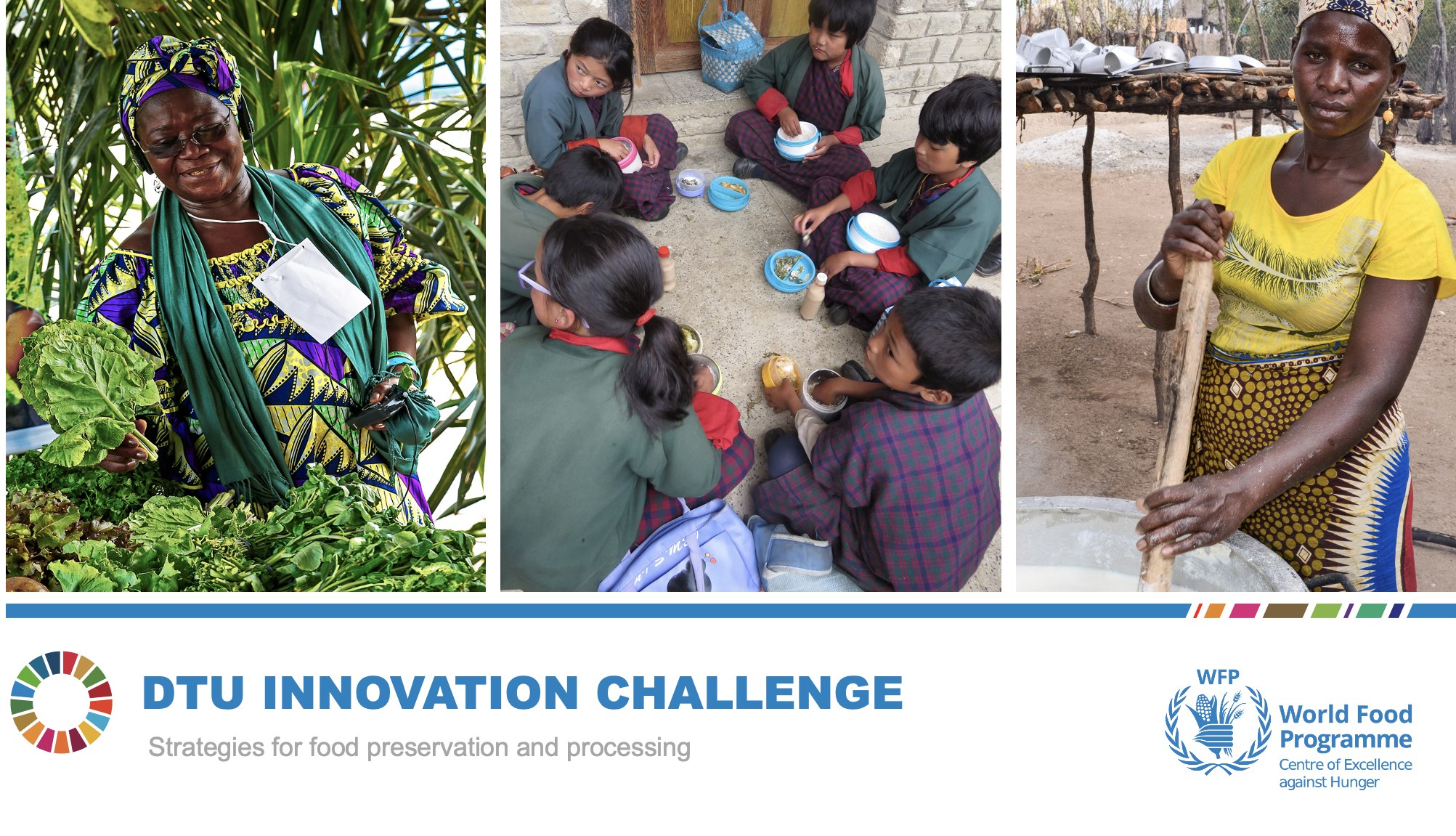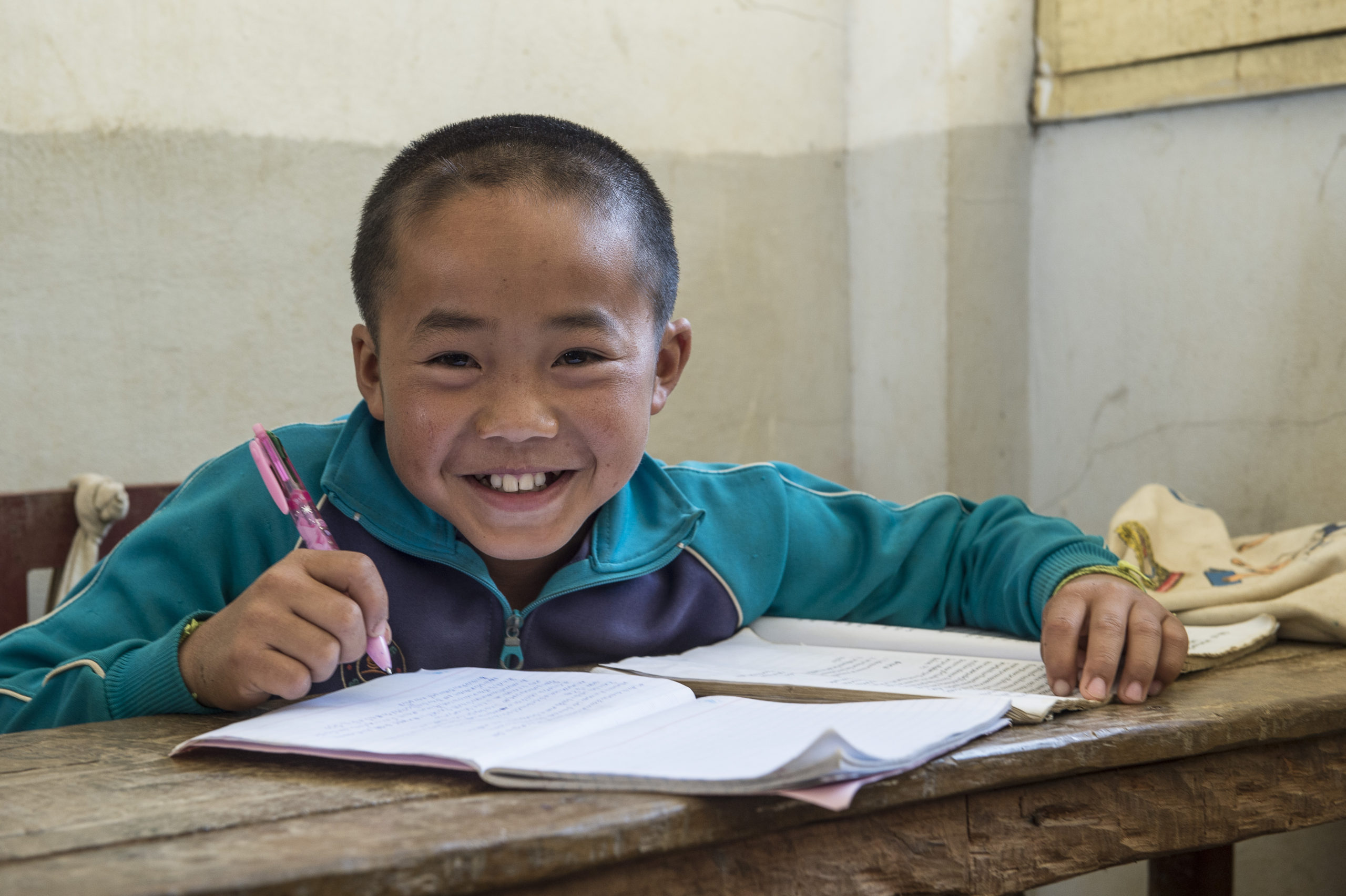
The first innovation challenge of the recently-launched partnership between the WFP Centre of Excellence against Hunger and the Danish Technical University (DTU) Skylab FoodLab was announced on March 10th in a meeting with students working under the DTU Innovation Pilot course. After a short presentation about how WFP operates, through both humanitarian work and sustainable development work, Yasmin Wakimoto, part of Programme team at the WFP Centre of Excellence, detailed WFP’s development work in home-grown school feeding programmes and how they help both local farmers and students’ health.
For this challenge, DTU students will work in interdisciplinary groups, focusing on specific challenges defined by the partners. The one launched by the WFP Centre of Excellence aims to answer the following question: how can we develop and implement preservation and processing techniques in small-scale agriculture to ensure a steady supply of food to national school feeding programmes in Africa and in Asia? To exemplify the challenge, Yasmin Wakimoto used the example of Lao, which has shown interest in technologies that could help them serve fresh food at schools throughout the year.

After a delegation from Lao visited Brazil in 2018 to learn about the country’s school feeding programme, they became interested in how Brazil processed food crops such as cassava. It soon became clear, however, that the techniques and machinery used in Brazil could not be automatically transported to Lao. So, for this challenge, the students will need to find adaptable solutions taking into consideration that the main producers will be smallholder farmers, which in turn will sell their crops to schools that serve meals to students. Challenge participants will also need to take into consideration that many of these locations have limited access to technology, clean water, and energy.
“We hope that the technical briefs and innovative solutions that come out of this challenge will become part of our Virtual Exchanges platform and will be useful for countries we are assisting at the moment”, said Yasmin Wakimoto. “We are particularly interested in how we can do that for cassava, peanut and green beans, as they are very common in a lot of the countries we work with”, she said.
“I’m excited to see how our students will address the challenge presented today. I have seen many interesting projects starting at the Innovation Pilot that the students continue to work on during their time at DTU. DTU Skylab FoodLab team will support the student activities in the phase of ideation, design, and prototyping”, said Roberto Flore, Head DTU Skylab FoodLab. DTU Skylab FoodLab is the food system change laboratory of DTU’s innovation hub and hosts a fully equipped test kitchen laboratory an area for prototyping, a space for research, lectures, and workshops.
During this challenge, Yasmin Wakimoto and Roberto Flore will interact with the students who will work to solve concrete and technical challenges. The aim of the DTU Innovation Pilot course is to equip future engineers with the tools to address the challenges they will face when they enter the business world. At the same time, partners such as the WFP will receive new engineering perspectives and solutions for the challenge that they have submitted.
During the meeting, students were able to ask questions about the specifics of the challenge, such as the definitions of small-scale agriculture, how smallholder farmers work collaboratively and in cooperatives, country-specific nutritional guidelines, weather conditions and other themes. The groups will work on the challenge over the coming weeks and the next meeting is scheduled for the beginning of April.




